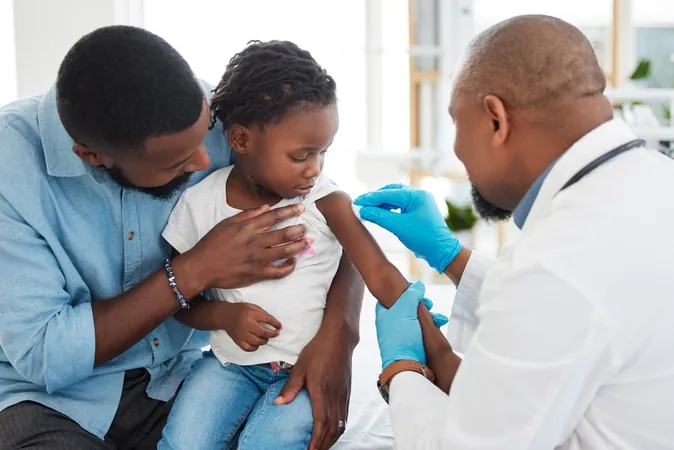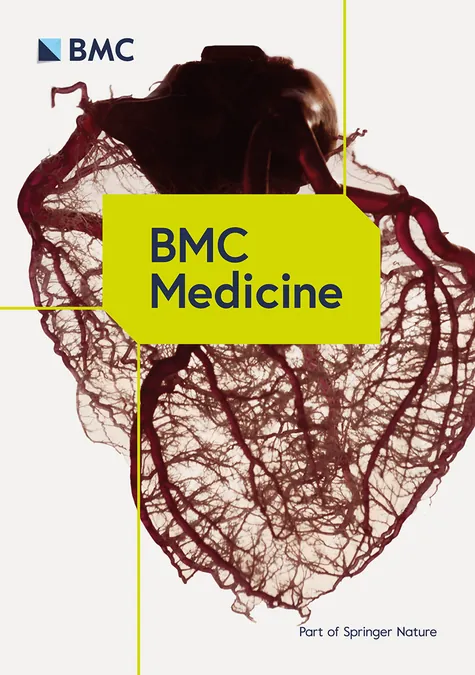
The Powerful Shield: Why Concurrent Vaccination is Vital for Combating Respiratory Viruses
2024-12-15
Author: William
The Science Behind Vaccination
Vaccination has become a cornerstone of public health, crucial especially in the ongoing battle against respiratory illnesses. Recent advancements in vaccine technology have revolutionized the way we enhance immune responses. This includes the practice known as simultaneous vaccination, which is gaining recognition for its safety and effectiveness. Though commonly used in pediatric healthcare, adults are now increasingly encouraged to get multiple vaccinations together, ensuring comprehensive protection against a host of viruses.
Understanding Immune Response
At its core, the immune system is our body’s defense mechanism against infections. Vaccines are purposefully designed to train the immune system to recognize and combat specific pathogens. Various vaccine types utilize cutting-edge technologies: inactivated viruses, mRNA that instructs cells to create viral proteins, protein subunit vaccines that target distinct components of the virus, harmless viral vectors, and weakened live viruses. Current studies affirm that the immune system can handle multiple vaccines without diminishing their efficacy; in fact, getting vaccinated simultaneously can provide a superior immune response.
An Expanding Vaccine Arsenal
The landscape of vaccines for respiratory illnesses has expanded dramatically, especially following the COVID-19 pandemic. Presently, vaccines are available to protect against not just COVID-19 but also influenza, Respiratory Syncytial Virus (RSV), Pneumococcus, and even MPox. Health authorities recommend these vaccines based on specific age, health conditions, and risk factors, and they often encourage simultaneous administration to maximize protection.
The Centers for Disease Control and Prevention (CDC) highlights concurrent vaccination as a strategic means of alleviating healthcare burdens. By receiving multiple vaccines at once, patients can cut down on healthcare visits, making the vaccination process more convenient while improving adherence to recommended vaccination schedules.
Addressing Common Misconceptions
Many individuals express concern about the impact of receiving multiple vaccines on the immune system. Research firmly debunks this misconception, demonstrating that the body can easily manage several vaccines without consequences. Side effects associated with vaccination—typically mild and temporary—include soreness at the injection site, mild fever, or fatigue, fading quickly without medical intervention.
Extensive clinical trials and ongoing monitoring have confirmed the safety of simultaneous vaccinations, showing that their advantages significantly outweigh potential risks. There are no significant long-term safety concerns tied to getting multiple vaccines simultaneously.
The Broader Public Health Benefits
The impact of vaccination extends far beyond individual protection, playing a vital role in achieving herd immunity, which can inhibit the spread of disease. This is especially critical for at-risk groups like the elderly, immunocompromised individuals, and young children. Moreover, widespread vaccination alleviates strains on the healthcare system by decreasing hospitalizations and curtailing the economic burden of treatable illnesses.
Access to vaccines, however, remains a significant challenge, particularly in rural and low-income areas. Geographic barriers, financial constraints, cultural hesitations, and logistical issues must be addressed through targeted interventions that facilitate vaccine accessibility for all, regardless of their circumstances.
The Role of Healthcare Providers
Healthcare providers are instrumental in ensuring successful vaccination efforts. Clear and open communication about vaccination benefits, addressing concerns, and providing trustworthy information is paramount in fostering patient trust. Additionally, efficient appointment scheduling and logistics training for staff can greatly enhance the vaccination experience.
Looking to the Future of Vaccination
The future of vaccination appears promising as emerging technologies continue to evolve. Innovations are making vaccines more effective and user-friendly, with researchers focused on the prospect of consolidating multiple vaccines into single shots. Such advancements are crucial for populations that face unique healthcare challenges.
Ongoing investigations aim to extend vaccine protection durations, effectively address emerging variants, and customize approaches for diverse demographics. Insights from real-world data and studies ensure that vaccination strategies remain sharp as we combat respiratory viruses.
Practical Steps for Effective Vaccination
Timing remains essential in optimizing vaccination efficacy; aligning vaccine administration with the peak seasons of respiratory virus activity can lead to better outcomes. Awareness of common side effects and their management is important, as typical mild reactions should resolve within days. Serious complications, however rare, should prompt immediate medical attention.
Conclusion
The data is compelling: administering multiple vaccines concurrently not only enhances individual protection but also significantly benefits public health. By embracing current vaccination practices and recognizing the transformative power of vaccines, we can collectively mitigate the impact of respiratory viruses and safeguard community health. Don't miss out on protecting yourself and your loved ones—get vaccinated today!









 Brasil (PT)
Brasil (PT)
 Canada (EN)
Canada (EN)
 Chile (ES)
Chile (ES)
 España (ES)
España (ES)
 France (FR)
France (FR)
 Hong Kong (EN)
Hong Kong (EN)
 Italia (IT)
Italia (IT)
 日本 (JA)
日本 (JA)
 Magyarország (HU)
Magyarország (HU)
 Norge (NO)
Norge (NO)
 Polska (PL)
Polska (PL)
 Schweiz (DE)
Schweiz (DE)
 Singapore (EN)
Singapore (EN)
 Sverige (SV)
Sverige (SV)
 Suomi (FI)
Suomi (FI)
 Türkiye (TR)
Türkiye (TR)